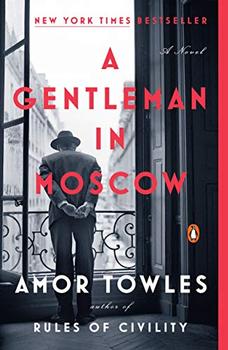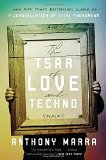Summary | Excerpt | Reviews | Beyond the book | Read-Alikes | Genres & Themes | Author Bio

A Novel
by Robert LittellThe Stalin Epigram is a fictional rendering of the life of Osip Mandelstam, perhaps the greatest Russian poet of the twentieth century - and one of the few artists in Soviet Russia who daringly refused to pay creative homage to Joseph Stalin.
Based on a riveting historical episode, The Stalin Epigram is a fictional rendering of the life of Osip Mandelstam, perhaps the greatest Russian poet of the twentieth century - and one of the few artists in Soviet Russia who daringly refused to pay creative homage to Joseph Stalin. The poet's defiance of the Kremlin dictator and the Bolshevik regime - particularly his outspoken criticism of Stalin's collectivization rampage that drove millions of Russian peasants to starvation - reached its climax in 1934 when Mandelstam, putting his life on the line, composed a searing indictment of Stalin in a sixteen-line epigram and secretly recited it to a handful of friends and fellow artists.
Would Stalin and his merciless state security apparatus get wind of this brazenly insulting poem? Would the poet's body and spirit be crushed under the weight of the state if they did?
Narrated in turn by Mandelstam himself, his devoted wife, his great friends the poets Boris Pasternak and Anna Akhmatova, along with vivid fictional characters, The Stalin Epigram is the page-turning tale of courage and the human spirit told in deftly poetic prose by a perceptive, talented writer. With the benefit of extraordinary research and an almost mystical empathy, bestselling author Robert Littell has drawn a fictional portrait of the beleaguered poet struggling to survive the running riot of Stalinist Russia in the 1930s. This memorable novel culminates in a wholly unexpected encounter that illuminates the agonizing choices Russian intellectuals faced during the Stalinist terror and explains what drew Robert Littell to the poignant subject in the first place.
A profound novel whose message of suffering and redemption echo that of some of Russia’s great works commingle with a refreshing narrative style that make Robert Littell’s latest work an exceptional example of historical fiction...continued
Full Review
 (663 words)
(663 words)
(Reviewed by Derek Brown).
 Born in Odessa, Russia in 1889, Anna Akhmatova began writing poems at the age of 11, adopting her grandmother's surname because her father would not permit her to publish under his own. As a member of the Acmeist school of poetry, Akhmatova achieved celebrity along with her husband, Nikolay Gumilyov, who was executed in 1921 as a counter-revolutionary. Between 1925 and 1940, all of Akhmatova's work was banned from publication in the Soviet Union. In 1930 she composed "Requiem," one of her finest and most famous poems, in dedication to the victims of the Stalinist Terror. "Requiem" was not published in Russia until 1987. Despite heavy censorship of her work, Akhmatova remained in Russia, and died in Leningrad in 1966.
Born in Odessa, Russia in 1889, Anna Akhmatova began writing poems at the age of 11, adopting her grandmother's surname because her father would not permit her to publish under his own. As a member of the Acmeist school of poetry, Akhmatova achieved celebrity along with her husband, Nikolay Gumilyov, who was executed in 1921 as a counter-revolutionary. Between 1925 and 1940, all of Akhmatova's work was banned from publication in the Soviet Union. In 1930 she composed "Requiem," one of her finest and most famous poems, in dedication to the victims of the Stalinist Terror. "Requiem" was not published in Russia until 1987. Despite heavy censorship of her work, Akhmatova remained in Russia, and died in Leningrad in 1966.
 Boris Pasternak ...
Boris Pasternak ...

If you liked The Stalin Epigram, try these:

by Amor Towles
Published 2019
From the New York Times bestselling author of Rules of Civility - a transporting novel about a man who is ordered to spend the rest of his life inside a luxury hotel.

by Anthony Marra
Published 2016
From the New York Times bestselling author of A Constellation of Vital Phenomena - dazzling, poignant, and lyrical interwoven stories about family, sacrifice, the legacy of war, and the redemptive power of art.